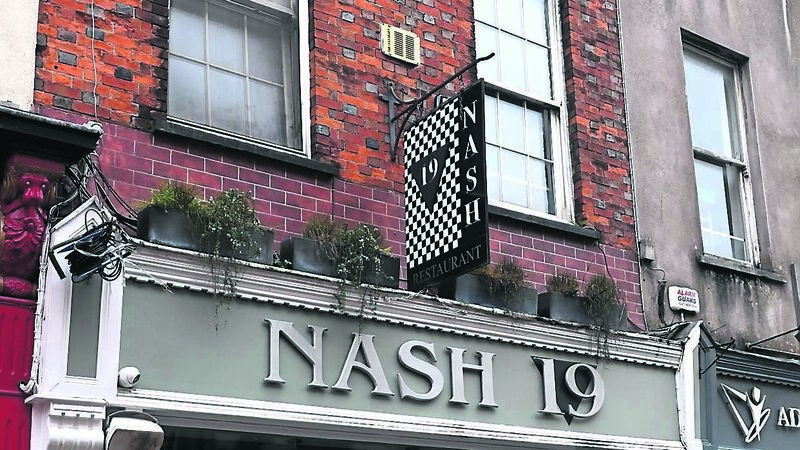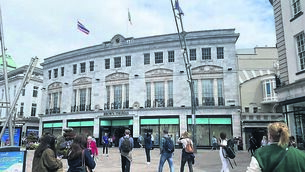€415 for an Oasis ticket, while fears for our economy grow...

My friend and I were talking about the Oasis ticket fiasco, where the price of admission was advertised for between €86 and €150 and then suddenly jacked up to €415 for some buyers because of ‘the demand’.
“This is crazy!”, I said.
“How can people even pay €415 for a concert ticket? Last year, we were officially in recession!”
“But we were only technically in recession,” explained my friend, who considers herself a bit of an expert on the economy.
This, she expounded, was because the economy shrank by slightly more than 3% in gross domestic product.
Last March, Paschal Donohoe, the Minister for Public Expenditure, she said, had stated, on radio, that this recession was only a technical matter which made hardly any difference to the lives of listeners.
There had been a further increase in the number of people at work in the country and the public finances were in surplus, he had said, and the technical recession was down to a shrinking GDP (Gross Domestic Product), rather than a shrinking Gross National Income, or GNI. Or so she said he’d said, if I had it right.
Oh right, I said, still a bit nonplussed.
It’s just a little bit of a technical recession, is it so?.
Now I have a lot of time for Paschal. I feel he’s a man who knows his onions.
All the same, whether it’s technical or not, any mention of recession gives me a bad feeling.
A few weeks ago, the Bank of Ireland said we could yet experience another “technical recession” this year. The bank revised down its forecast for GDP growth to 1%, reflecting a fall-off in contract manufacturing, which, it seems, is not actually a slowdown in domestic activity, but merely the effect of multi-national firms here contracting third parties abroad to produce goods on their behalf.
(To me, this behaviour should inevitably result in a slowdown in domestic activity here - after all, if multi-national firms here are now getting stuff produced abroad that would otherwise have been produced here, surely that would have a knock-on effect on domestic activity? But then, I’m not an economist.)
All the same, that’s an awful lot of talk about recession, technical or not, for my liking.
A few weeks ago, I went for a celebratory lunch with some friends to a not inexpensive restaurant in a small town less than an hour’s drive from Cork city.
Mid-afternoon, the place was packed to the rafters. And I mean, jammed. Well-dressed families were ordering beautiful food from menus that, though they could not be described as exorbitant, were definitely very expensive. They weren’t feeling any great sense of recession.
A friend complained about the massive influx of boorish Dubs streaking up and down narrow boreens to their holiday homes at eye-watering speeds in enormous vehicles, refusing to give way or reverse and glaring down their noses at the locals.
“They think they’re still on the M50,” she snarled.
However unpleasant, snobbish, ill-behaved - and even in some cases unwelcome - they may be, a cascade of wealthy holidaying Dubs in an area cannot be viewed as a sign of recession.
That was July.
In August, I was doing some grocery shopping in a well-known Irish supermarket chain.
I put a hand on a box of well-known, family-brand toothpaste and saw they were charging €7.50 for it. The box looked exactly the same as it always had. It wasn’t promising to fix your fillings for you or anything.
I took my hand away. It was a wonder it hadn’t one of those electronic security tags attached to it. Charging €7.50 for a tube of toothpaste could be called a lot of things, but hardly a sign of recession.
A visit to the DIY shop left my husband unsettled. The price of a can of paint seemed to have doubled, he reported.
But here’s the thing.
Here’s where it all starts to feel a bit schizophrenic.
While we’re struggling to cope with these crazy prices in this tiny little technical nothing of a recession we’re having, a lot of businesses seem to be hitting the rocks.
“Feels like we’ve been down this road before,” my friend said soberly.
Between September, 2023, and last month, she said, tapping into her phone, there have been nearly 580 restaurant closures.
A few names you might know: The well-known Sage restaurant in Midleton has closed. So has the Cork city landmark Nash 19, along with Burnt and Electric. Two high profile Dylan McGrath restaurants in Dublin have closed unexpectedly. Then there’s Ted Baker. And, after more than four decades operating in the town, the medical devices firm Cardinal Health in Tullamore is to begin a phased closure with the loss of 300 jobs.
On top of this are the tiny but worrisome anecdotes filtering back from the frontline.
True enough - walk out the door of that shop. Look left or right; small businesses were closing. Customers were only coming in to buy exactly what they needed, she said. No more browsing.
The owner of a well-established family pub told me with a shake of the head that business wasn’t so great.
The owner of a small but previously busy supermarket said the same.
A similar sentiment was expressed by the owner of a previously thriving food catering service, who said business had been slowly but steadily decreasing for the past 18-24 months. She was lying awake at night a lot, worrying.
They all seemed to feel that there was an odour of 2007 about the place. That on one side things are increasingly, bewilderingly frenetic, and on the other side everything’s going a bit soft around the edges.
Is it just a case of a technical recession that’s apparently affecting nobody?
Or are we in another case of The Emperor’s New Clothes?







 App?
App?




